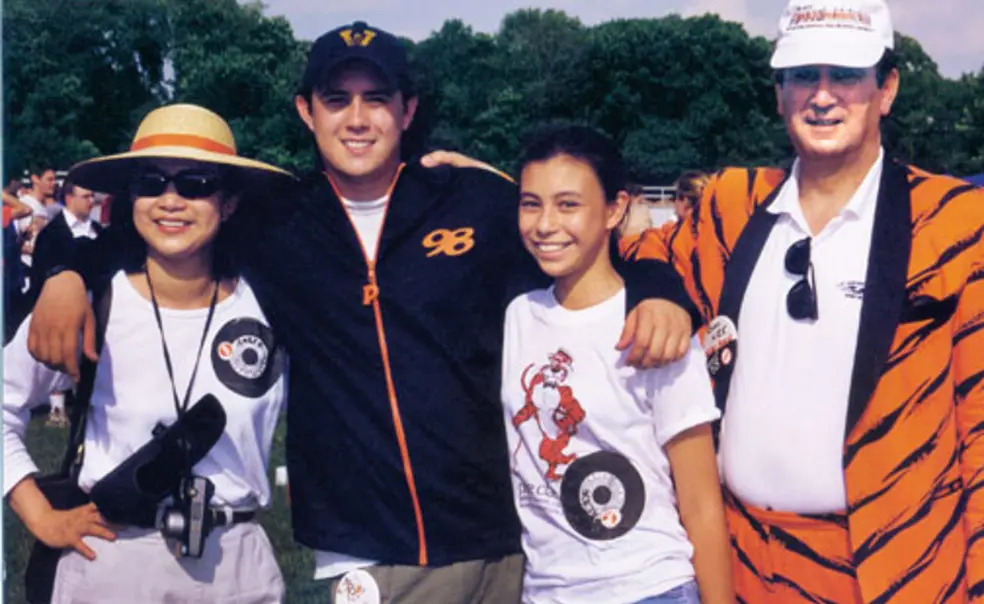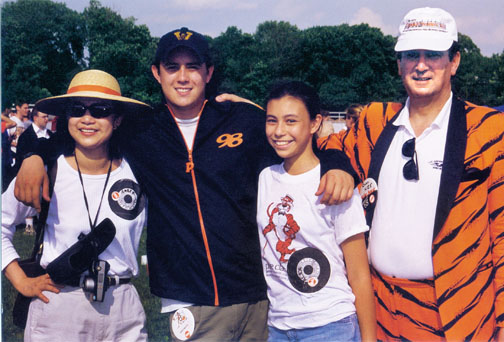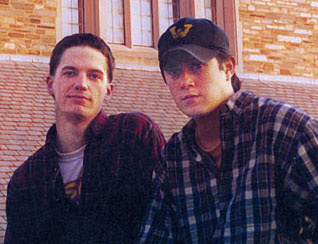You were lucky if your time at Princeton overlapped with that of Dave Nee ’98. Charming, funny, brilliant — his spirit was infectious. A politics major, he was an avid Tiger basketball fan who organized away-game road trips, and he was the life of any room he was in, from the classroom to the taproom.
“If there was anyone who looked like he knew how to have a fun life, it would have seemed to have been him,” says his sister, Claire Nee Nelson ’96.
“He was connected with people all over campus, from Prospect Street to the bowls of Woody Woo,” adds close friend Amy Marisa Lopez-Hollis Balducci ’98, and later, at Fordham Law School, his outgoing nature attracted new friends. Yet while Nee relished his role as confidant to his many friends, he hid his own depression. In June 2005, just weeks before he would have taken the bar exam, he took his own life.
Friends and family reeled with grief, agonizing over how they could have missed what they began to realize had been a long, private struggle. Shortly after his death, with support and encouragement from Nee’s family — parents Amber and Owen Nee ’65, sisters Claire and Alex ’06, and brother-in-law Josh Nelson ’95 — friends created the Dave Nee Foundation to promote awareness of the symptoms of depression. Pierre Bastien ’98 was one of the founders, Balducci sits on its board, and dozens more have contributed to the foundation’s work: James Stanford ’98 created a documentary shown at fundraisers, Caroline Frank Lapidus ’98 and Rick Lapidus ’98 are regular hosts of its annual gala, and James Mastaglio ’98 ran in a marathon that raised more than $10,000 to support the foundation.
At the core of the foundation’s mission are grants awarded to national and local organizations that create and support mental-health peer-support groups for high school and college students. In 2009, the foundation expanded its reach and launched Uncommon Counsel, the country’s only depression- and suicide-outreach program targeting the group of which Nee was a part when he died: law students.
According to one study published in the American Bar Foundation Research Journal, before matriculation, 8 to 9 percent of law students report depression, but by the time they graduate, that figure is 40 percent. Another study, in the journal Academic Medicine, shows that 96 percent of law students identify themselves as stressed, compared to 70 percent of medical students and 43 percent of graduate students.
“People who go to law school tend to be very competitive, and the law-school environment typically fosters competition. The combination is one that makes people work harder than they should and ignore a work/life balance, so they don’t exercise, pursue their hobbies, or spend as much time with friends,” says Georgetown University Law Center dean William Treanor, who was dean at Fordham Law School during the years Nee attended. “Even students who achieve their goals can find law school emotionally difficult.”
Through Uncommon Counsel, the foundation makes students aware of their vulnerability. Volunteers visit law classrooms to share Nee’s story and distribute school-specific brochures that alert students to the symptoms of depression in themselves and their friends and direct them to school, state, and national resources.
Wynne Kelly, one of the foundation’s directors and one of Nee’s Fordham classmates, assures students that admitting depression “doesn’t make you a failure, doesn’t make you less likely to be a successful lawyer. It makes you a statistical norm.” Then, Kelly says, he points to a picture of Nee on the brochure. “This is real,” he tells students. “This happened to a friend sitting in a seat just like the one you’re in now.”
Uncommon Counsel has introduced its programming to other law schools, including Duke, CUNY, and New York Law School and, with more partnerships in the works, it hopes to reach some 800 students this year.
“One of the things the foundation wants to do is to take away the taboo of discussing depression and suicide,” says Bastien. “Dave was the greatest conversationalist, but he could never talk about his depression.














No responses yet